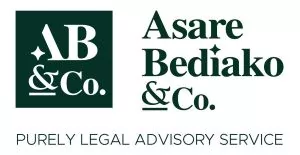- within Family and Matrimonial, Litigation, Mediation & Arbitration and Employment and HR topic(s)
Setting Up Or Registering A Company In Ghana: What You Need To Know.
INTRODUCTION
Incorporation of a company is the first step in registering a business in Ghana. For a business or a venture to attain a legal status it has to be registered in line with operating local laws within the jurisdiction within which it intends to operate.
The process of setting up a company or incorporation of a company varies from country to Country. Ghana, a sovereign country, has its own laws and regulations which cover or regulate the setting up or the incorporation of a company.
This article provides a guide on how to set up or incorporate a company limited by shares (Private or Public) and other relevant steps required in order for a company to be compliant with the local laws and regulations.
In summary, setting up or incorporation of a company can be effected by undertaking the following broad three steps:
- Registration of the business at the Registrar General Department;
- Registration of the business at the Ghana Investment Promotion Center (GIPC);
- License(s) and/or permit(s) from other regulatory or relevant bodies
REGISTRATION AT THE REGISTRAR GENERAL DEPARTMENT
Registrar General Department is the department in Ghana which is authorized to undertake the registration or incorporation of businesses in Ghana. Therefore, Registrar general department is the first point of call to start with the registration of your business.
The following are the types of companies that can be incorporated under the relevant company act: A company limited by shares; A company limited by guarantee; An unlimited company and An external company.
Before you start the process at the Registrar Generals Department, you must ensure that the required documents are available and ready.
ASCERTAIN COMPANY NAME
The first step in the process of incorporating a company is to conduct searches at the Registrar General Department to ascertain whether your intended business name is available or acceptable by the Registrar General.
The intended business name must not be misleading or undesirable. If in the opinion of the Registrar General, the business name is misleading and undesirable the Registrar will not allow the company name to be registered.
After the search, the prospective person or investor can apply and pay relevant fees to get their proposed name reserved for a period not more than two months.
APPOINTMENT OF DIRECTORS OF THE COMPANY
It is mandatory that every company at the time of the incorporation must have at least two directors, one of the directors must be ordinary resident in Ghana. The appointed person must meet the requirements indicated at S173 of the companies act, 2019, that is, must not be an infant; must be of sound mind; not a body corporate; must not be prohibited from being a director etc.
The appointed director must consent to the appointment. The Applicant or the promoter must provide proof of it by submitting a written consent letter to the Registrar General.
APPOINTMENT OF AUDITORS
The proposed company must appoint qualified auditor to audit it activities. The appointed auditor must accept or consent to the appointment in writing.
APPOINTMENT OF COMPANY SECRETARY
It also mandatory to appoint a company secretary to provide secretarial services to the company. The appointed person or entity must have obtained a professional qualification or tertiary level qualification, chartered accountant, lawyer etc. If the appointed company secretary is a company, one of the officers who will undertake the services must meet one of the requirements indicated above. The appointed company or person must consent to it and there must be proof of it in writing.
APPLICATION FOR TAX IDENTIFICATION NUMBER (TIN)
It is mandatory that all the officers and members of the company must have a TIN number. TIN numbers are unique tax identification number given to each person. The Registrar General will not accept the application if an officer or a member do not have the TIN number. Therefore it is important to ensure that all the members or the officers have a valid TIN Number ready before you will start the process.
STATED CAPITAL
Stated Capital is the amount the members or shareholders of the company intend to invest in the proposed company. There is no restriction in respect of the amount a local person or a Ghanaian is required to invest. However, there is restrictions in respect of companies classified as foreign entity and foreign local partnership or joint venture.
STATED CAPITAL RESTRICTIONS FOR WHOLLY OWNED FOREIGN COMPANY
A company is classified as Foreign Owned Entities when it is entirely owed by a non-
Ghanaian. The entity has to meet the following requirements:
- Services industry: minimum required investment is $500,000.00
- Trading: minimum required investment is $1,000,000.00
- Manufacturing: no minimum required investment for businesses which sole purpose is for manufacturing or for export.
STATED CAPITAL RESTRICTIONS FOREIGN LOCAL JOINT VENTURE
For company to be qualified as foreign local partnership, there should be a Ghanaian partner who must have a minimum of least 10% stake or share in the proposed company. The company must also meet the following stated capital:
- Services industry: minimum investment required is $200,000.00.
- Trading: minimum investment required is $1,000,000.
OTHER DETAILS REQUIRED FOR COMPLETION OF THE FORMS
The business will be required to indicate the sector it will be conducting business; the nature of the business; the registered address of the business and contacts; details of shares and its allocation and the business or company address.
FILLING OF FORMS
Upon ascertaining all the above, the prospective applicant must buy the relevant forms from the registrar general department or download it online.
Below are some of the relevant forms to complete:
- FORM 3
- FORM 26(C)
- FORM 26(B)
- TAX PAYER REGISTRATION FORMS
PAYMENT OF STAMP DUTY AND ADMINISTRATION COST
Upon completion of the forms above, you then present it to the Registrar General to start with the processing of the application.
Upon presentation, you will be required to pay statutory stamp duty which is equivalent of 0.5% of the stated capital. Example, if the stated capital is $1,000,000.00 you will be required to pay an amount of 0.5% of the stated capital which will be $5,000.00.
Subsequent to the above, the registrar general will examine, approve and issue the following documents to the applicant:
- Certificate of incorporation
- Certified copy of Standard/Registered constitution of the company
- Certified copy of form 3
REGISTRATION AT GHANA INVESTMENT PROMOTION CENTER (GIPC)
All foreign or foreign local joint investors are mandated to register their businesses with GIPC. At GIPC the investor is required to provide proof of their stated capital indicated on the incorporation document (Form 3) either in cash or kind or combination of both. Upon satisfactory meeting the requirement, GIPC will then issue certificate to the investor.
Upon receipt of the certificate the entity will be entitled to quotas enable them secure working permits for their foreign national staffs.
REGISTRATION WITH OTHER AUTHORITIES AND BODIES
Upon successful registration of the entity with the Registrar General Department and GIPC, the business or the entity is legally set up and ready to operate. However, there are other mandatory authority which the entity is required to register or secure permit.
BELOW ARE SOME OF THE ENTITIES
- REGISTRATON WITH GHANA REVENUE AUTHORITY: Upon incorporation of the company, the company is required to register with Ghana Revenue Authority. All companies are required to register for the purposes of statutory taxes.
- APPLY FOR SOCIAL SECURITY: To register Social security, you will require the list of employees, salaries, their Social Security Numbers and the company's Certificate of Incorporation and Certificate to Commence Business.
- APPLY FOR ENVIRONMENTAL IMPACT ASSESSMENT CERTIFICATE: Depending on the nature of the business it is required that you apply for Environmental Permit with Environmental Protection Agency (EPA).
- BUSINESS LICENCE FROM THE METROPOLITAN AUHTORITY: The business also has to be registered with the metropolitan authority within the area it intends to operate.
- REGULATOR: Further some of the business ventures will require that you apply with the relevant regulator for license before you can conduct businesses, eg in the oil and gas industry, an entity is required to apply for the relevant license from the National Petroleum Authority before it can be permitted to operate.
The above are useful tips to guide you in setting up or incorporation of business in Ghana. However, some of the steps may vary depending on the nature of the business and the purpose of the business.
In that regards, it will be beneficial to consult a legal person or a specialized entity to assist and guide you through the stages of the process.
The content of this article is intended to provide a general guide to the subject matter. Specialist advice should be sought about your specific circumstances.


